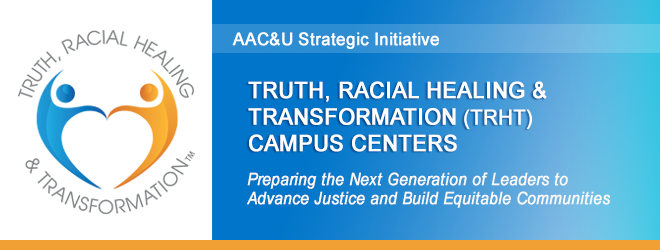
Loyola Marymount University has been chosen to host a Truth, Racial Healing & Transformation Campus Center by the American Association of Colleges and Universities.
The center, along with others at colleges and universities nationwide, aims to pursue the shared goal of preparing the next generation of leaders and thinkers to break down racialized practices and to dismantle the belief in a hierarchy of human value. LMU’s TRHT Center Alliance will address historical and contemporary effects of racism to promote transformational and sustainable change, focusing on intergroup dialogue, community-building, and restorative justice practices.
“We’re pleased to be partnering with AAC&U to establish this center at Loyola Marymount,” said Jennifer Abe, vice president for diversity, equity, and inclusion at LMU. “Higher education must play a leadership role in promoting racial justice, by engaging our communities and supporting efforts to alleviate inequities that spring from a false notion of racial hierarchy.”
LMU joins the likes of Brown University, Duke University, Rutgers University, and other TRHT Campus Centers, pursuing the shared goals of racial healing, systemic transformation and sustainable change.
“For the past four years, we have worked with a dedicated group of change leaders who are striving to make our institutions and communities more just and equitable,” said Tia McNair, AAC&U’s vice president for diversity, equity, and student success and executive director for the TRHT campus centers. “We are inspired to expand our network with the addition of these host institutions.”
AAC&U began the TRHT project in 2017 with centers at 10 campuses. Since then, it has grown to encompass centers at 49 colleges and universities across the country. The launch of 19 new centers this year is supported by funding from Lumina Foundation, the Meyer Foundation, and Wiley Education Services.
“We look forward to partnering with these pathbreaking institutions in their efforts to promote racial equity and healing on their campuses and in their communities,” said AAC&U President Lynn Pasquerella. “We’re grateful to our funders for their commitment to ensuring that higher education plays a leadership role in advancing racial and social justice in our society.”



